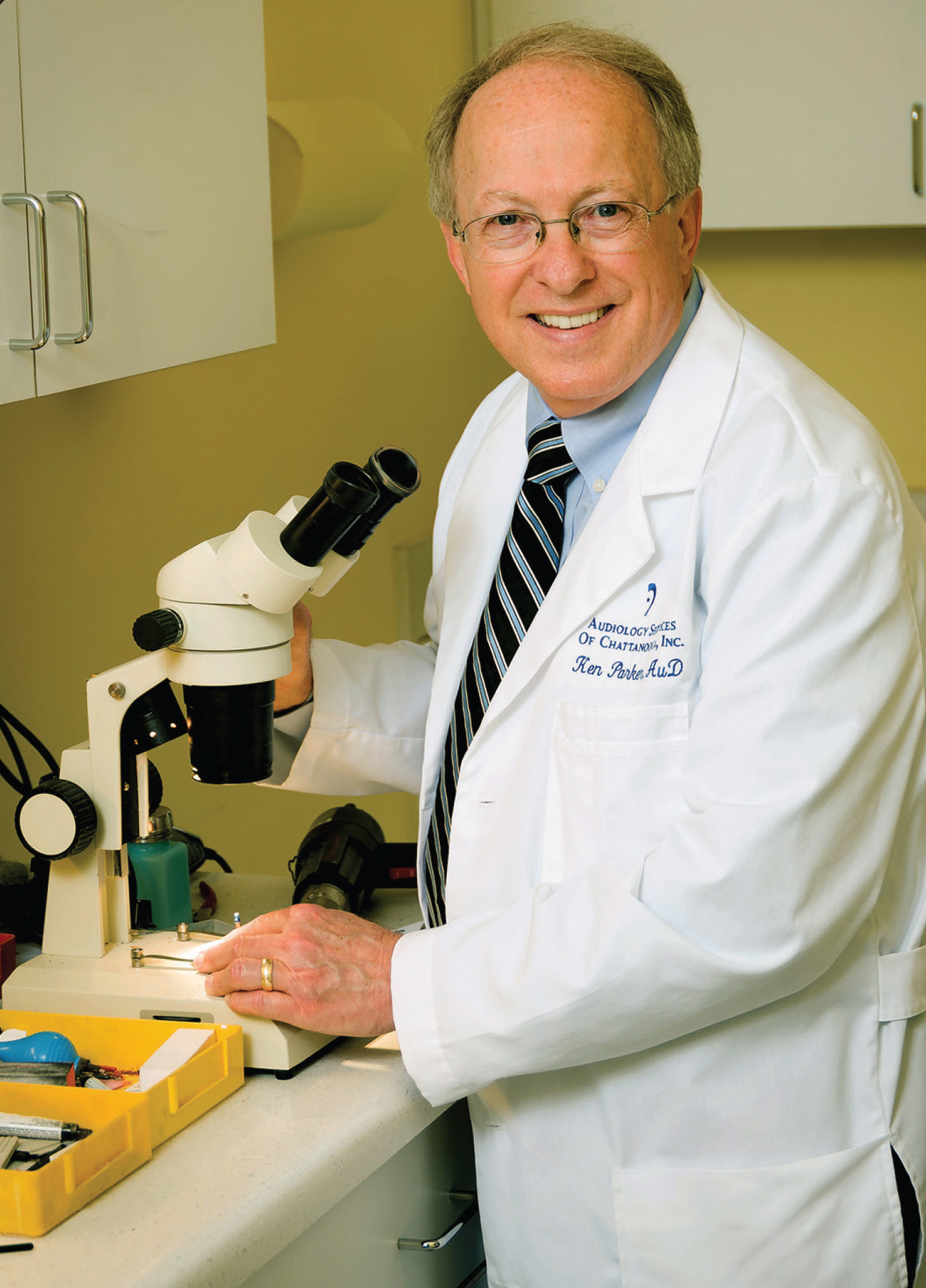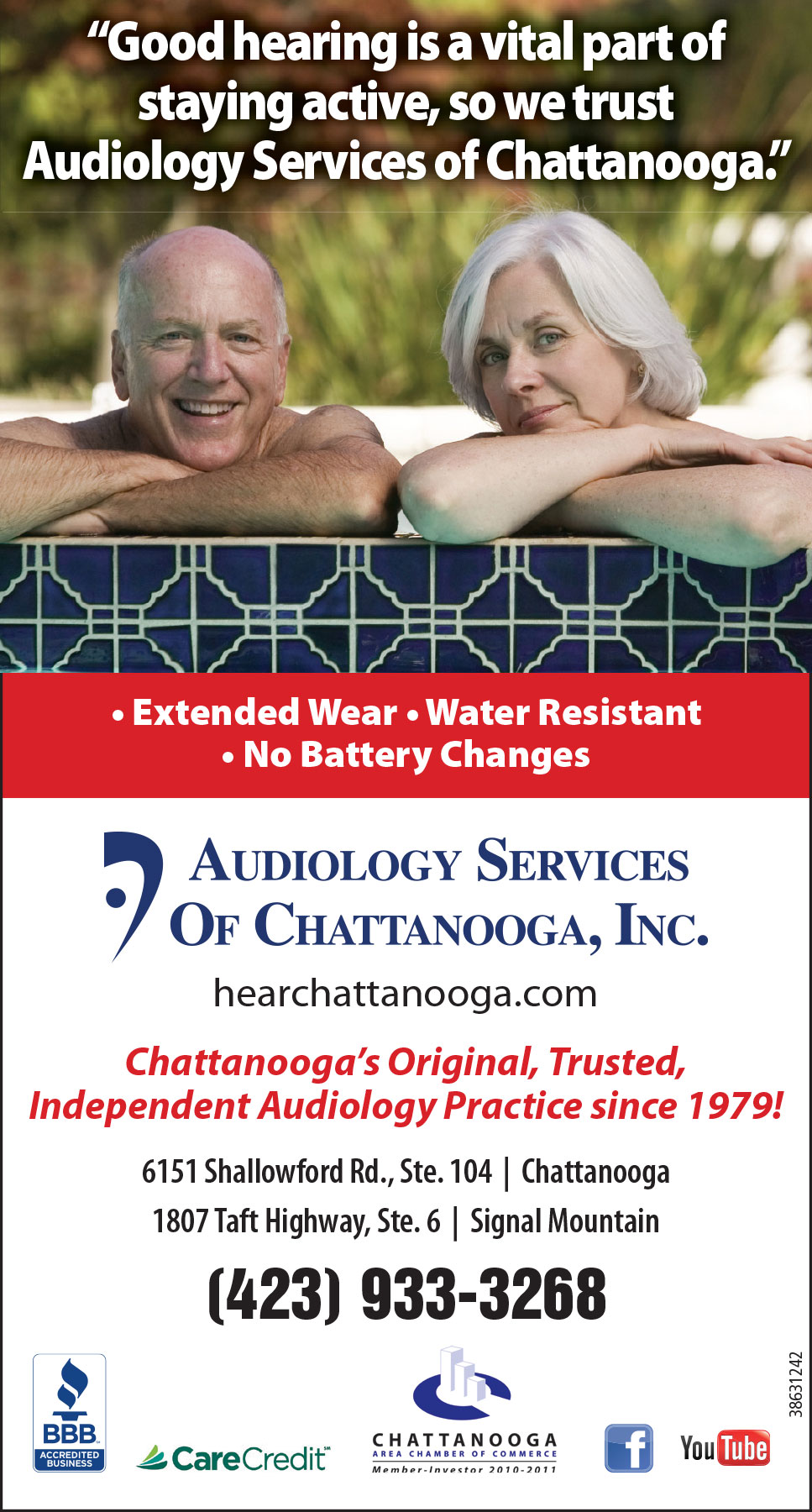When people hear that I am an audiologist, I am generally hit with a group of questions that have occurred so often that I can almost anticipate them.
1. What is an audiologist? This question was far more common when I finished my audiology degree from the University of Georgia in 1974. There are more audiologists now, so most people have heard of an audiologist, but I still get that question occasionally. An audiologist is trained in the science of hearing and hearing loss. Some audiologists specialize in balance problems. Audiology programs are similar to medical school, because four additional years of study are required after an undergraduate degree is earned. The study includes the science of sound, hearing and the anatomy of the ear and head. We learn nonmedical treatment of hearing loss and balance problems. Upon graduation from an audiology program, a doctor of audiology is granted. This is not a medical degree; we do not do surgery or prescribe medicine. We have the privilege of helping our patients reconnect to their world, which gives audiologists a gratifying profession.
2. What can I do about my hearing loss? When one has a loss of hearing that cannot be corrected by medicine or surgery, they sometimes are desperate for answers. Many of my first-time patients will say, "Should I go take a lip-reading class or a sign language class?" I tell them that while these approaches may have some value, that value is limited. If we learn sign language, everyone in our association must also know sign language. Otherwise, we will be "talking" in a foreign language and are still isolated. What about lip-reading? There is slightly more value here, because lip-reading can assist one who has a loss of hearing, but this approach also has severe limits. Only 40 percent of our speech sounds are visible on the face, and some of those sounds look like others. Try this experiment: Look in the mirror and just "mouth" the phrases "post office" and "most of us." What did you see? These phrases obviously sound different, but they "look" the very same. Well fit, well-adjusted hearing devices are generally the best answer to a loss of hearing. Modern hearing devices are like cellphones; they are substantially better than the units your grandfather had. When properly fitted and adjusted to the loss of hearing, they can be effective and satisfying.
3. Why all the hearing aid ads? Man, have I gotten this one recently! As many of you who take the daily paper know, there have been numerous ads by audiologists and hearing aid dispensers. I do not know all the answers to this question, but there are many of us "baby boomers" getting to the age when our hearing begins to "drift." Consequently, we are marketing our business or products to the pool of potential patients. Some of the ads are informational, but some are misleading. Be aware of the warning signs. For instance, "Need 23 people to try new technology." This phrase is an effective way to entice you into a hearing aid company thinking that you may be a part of a study to evaluate new technology similar to drug studies. This is not the case; the hearing aids have already been field tested and are ready to market. If you respond to this ad, be aware that this company will attempt to persuade you to purchase this new technology, not just let you try it. Another ploy is to "bait and switch." You will see ads which show hearing devices for $399 or $499. That again is a way to entice you to that office. When you arrive, you will be strongly encouraged to disregard the advertised "cheap" product. Instead higher technology units will be recommended, because the cheaper products will not address your problem. You may be informed that your loss is too severe for the cheaper units. Selling you the "price leaders" is probably not the intention. You should also be very wary of promises of perfection. Phrases like "background noise eliminated" should be somewhat doubted. The modern devices are very good at managing noise, but no amplifier can eliminate background noise.
If you have questions, call Audiology Services, which may have an answer for you.
Noteworthy:
"Be aware of the warning signs [of misleading ads]," said Dr. Ken Parker of Audiology Services of Chattanooga. "For instance, 'Need 23 people to try new technology.' This phrase is an effective way to entice you into a hearing aid company thinking that you may be a part of a study to evaluate new technology similar to drug studies. This is not the case; the hearing aids have already been field tested and are ready to market."
MORE INFORMATION
Audiology Services of Chattanooga is at 6151 Shallowford Road. To learn more or to schedule an appointment, call 423-822-2359.

